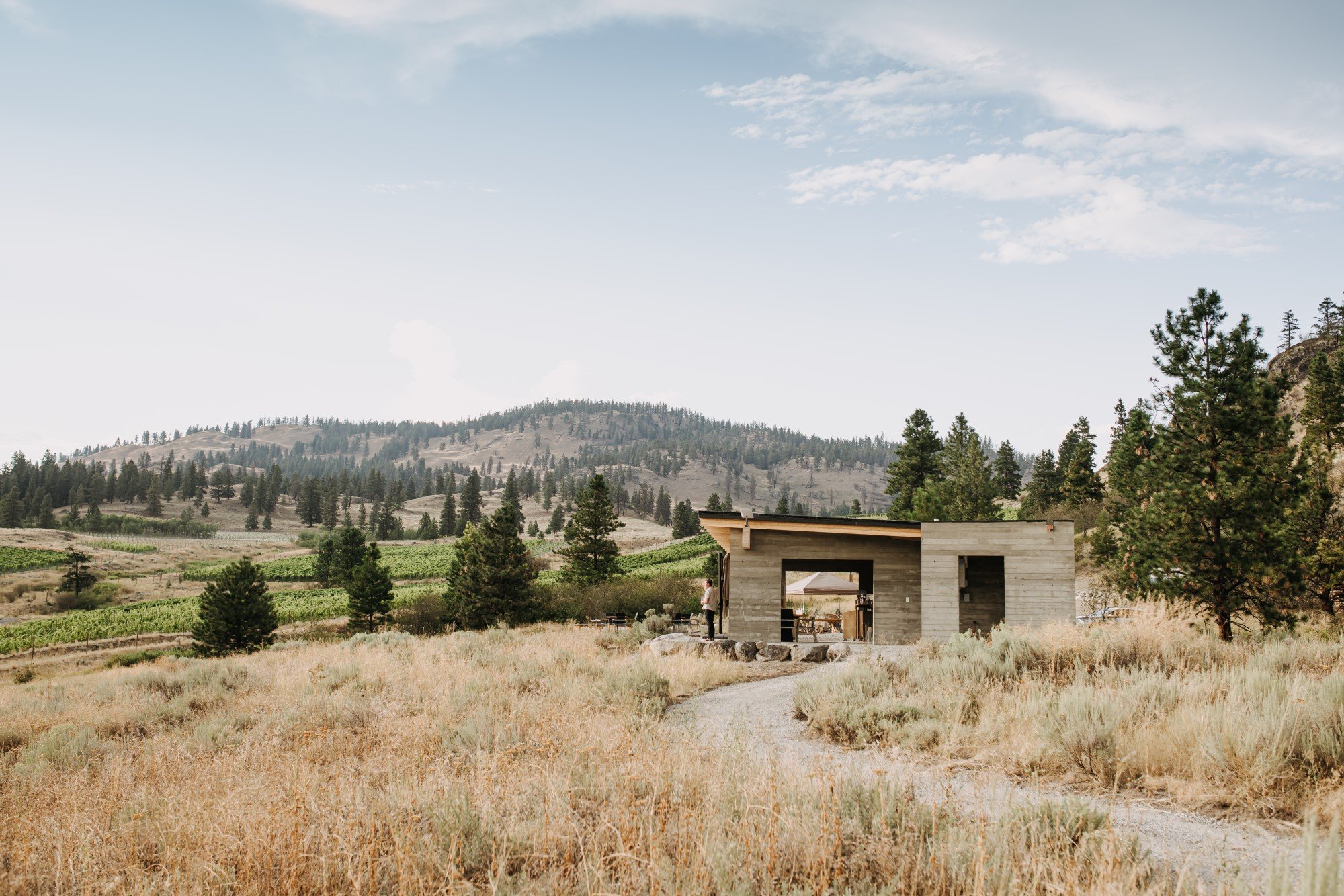Renewable Natural Gas (RNG) and its role in the Thompson Okanagan Region
The Thompson Okanagan Tourism Association (TOTA) is deepening its commitment to destination stewardship and sustainability through a new partnership with Natural Resources Canada and FortisBC. The goal of the initiative is to increase awareness of Renewable Natural Gas (RNG), what it is, and how easy it is to switch to using RNG to heat and power homes and tourism businesses. In light of recent climate crises in the region, RNG is an actionable way to help mitigate the effects.
RNG will transform BC’s energy future by reducing BC greenhouse gas emissions, a step that FortisBC has made possible by offering residential and commercial customers the option to buy into the affordable RNG program at their desired level.
What is Renewable Natural Gas (RNG)?
RNG is made from organic waste produced by existing waste management activities, such as food scraps in landfills, manure from farms, and wastewater treatment. As organic matter decomposes, it releases methane, a naturally occurring greenhouse gas, into the air.
FortisBC has been working with local farms, landfills, green energy companies, and municipalities to capture that methane and purify it to become RNG. This action plays an important role in supporting the Province of British Columbia’s CleanBC Roadmap to 2030.
The Glenmore Landfill in Kelowna and the Salmon Arm Landfill are two Renewable Natural Gas suppliers for the Thompson Okanagan.
Overall Environmental Benefits
RNG is an adaptable option to lower carbon footprints in businesses, transportation, and residential sectors. RNG assists in reducing Greenhouse gas (GHG) emissions that would be released when using conventional natural gas and does not add to the natural carbon cycle. RNG is also creating sustainable by-products such as organic compost, mulch, and hygienic bedding material for livestock - all reducing the need for chemical variations.
Customers have the option of replacing 5% to 100% of their natural gas consumption from conventional natural gas with RNG. The switch can be made online directly through an existing FortisBC account.
The Big Goal - “30by30”
The Greenhouse Gas Reduction Regulation of BC’s Clean Energy Act provides a clear target of reducing BC’s GHG emissions by a measure of 30% of 2005 levels by 2030 - known as “30by30.”
FortisBC has aligned their efforts to achieve this GHG reduction goal, using a switch to RNG as one of the strategies. Specifically, FortisBC aims to blend their total Natural Gas stores with 15% RNGs by 2030. By 2050, FortisBC intends to replace 75% of their Natural Gas stores with low carbon fuels *. In 2022, FortisBC tripled their Renewable Natural Gas supply.
How is Renewable Natural Gas Different from Conventional Natural Gas?
Renewable Natural Gas is biogas, made from decomposing organic waste.
Conventional natural gas is a fossil fuel derived from the earth crust, which adds greenhouse gas emissions to the atmosphere through extraction and use. Conventional greenhouse gas is responsible for the warming of the planet and related negative climate changes. The two types of natural gas are interchangeable in the system because they are chemically the same, with methane as their primary component.
RNG is low carbon energy when compared to the lifecycle carbon intensity of conventional natural gas. FortisBC’s current RNG portfolio lifecycle emissions are below BC’s low carbon threshold for lifecycle carbon intensity.
Biogas? Bio-what?!
Biogas is a renewable source of methane gas that is created when organic waste breaks down in the absence of oxygen. Methane is also the key component of traditional natural gas derived from earth. Biogas consists of two gases: methane (CH4) (55-65%) and carbon dioxide (CO2)(45-35%), along with trace amounts of hydrogen sulphide (H2S).
Biogas is captured from organic waste through a sealed tank known as an anaerobic digester. Next the biogas is cleaned and upgraded to pure methane by removing the CO2 and H2S. The resulting gas is now carbon neutral and interchangeable with conventional natural gas. RNG is easily injected into the existing Natural Gas grid to be used for heating, cooking, and other power needs. RNG can even be compressed to be used as vehicular fuel as Compressed Natural Gas (CNG).
How is RNG Delivered to my Business or Home?
Natural gas systems across North America are all interconnected. When a portion of RNG is injected into the system it blends seamlessly with natural gas. Businesses and individuals who switch to using RNG collectively contribute to a significant reduction of greenhouse gas emissions.
What’s the Cost Difference?
The cost of Renewable Natural Gas (RNG) depends on the blend you choose. Customers can choose to switch to 5%, 10%, 25%, 50%, or 100% of their natural gas to RNG.
Get Started: Invest in the Future of the Thompson Okanagan and Make the RNG Switch Today
Signing up for RNG is very simple and can be done without making any upgrades to existing appliances. FortisBC is the flagship utility company of British Columbia dealing in Natural Gas and Renewable Natural Gas. Those wanting to use RNG must be a FortisBC customer.
Follow the steps below to sign up online for RNG:
- Select Renewable Natural Gas under the “manage services” menu and follow the steps to enrol.
Make the Commitment and Enter to Win a VIP Garnet Valley Ranch Experience



TOTA and FortisBC are pleased to partner with a Summerland-based business that takes their commitment to sustainability seriously: Okanagan Crush Pad and Garnet Valley Ranch are not only adding Renewable Natural Gas into their energy portfolio, but are also encouraging the entire region to take steps towards reducing climate-warming emissions by offering a two-night stay at the brand-new Garnet Valley Ranch Winery to bring awareness to this worthy climate action cause.
Funding provided by Natural Resources Canada
Natural Resources Canada (NRCAN) is the department of the Government of Canada responsible for natural resources, energy, minerals and metals, forests, earth sciences, mapping, and remote sensing. NRCAN is committed to improving the quality of life for Canadians by ensuring the country’s abundant natural resources are developed sustainably, competitively and inclusively. NRCAN develops policies and programs that enhance the contribution of the natural resources sector to the economy and conducts innovative science in facilities across Canada to generate ideas and transfer technologies. Natural Resources Canada has provided TOTA with funding to spread awareness about the benefits, availability, and accessibility of Renewable Natural Gas to regional tourism stakeholders.
Destination Stewardship in the Thompson Okanagan
TOTA has created specific programs to ensure they are contributing toward building a sustainable and responsible destination. These are:
TOTA will work in tandem with GreenStep Solutions to assist stakeholders’ understanding, implementation, and measurement of environmentally sustainable practices.
TOTA signed an agreement with Spain's Responsible Tourism Institute and embarked on the process of Regional Sustainable Tourism Certification.
TOTA works with Biosphere, a Sustainable Tourism System certified by the Responsible Tourism Institute. The institute is an international certification body that maintains a Memorandum of Understanding with UNESCO, is affiliated to the World Tourism Organization, and is a member of the Global Sustainable Tourism Council. The system is aligned with the United Nations 17 Sustainable Development Goals and the Paris COP21 Accord to Fight Climate Change.
Through the Regional Biosphere Certification, TOTA created the Thompson Okanagan Biosphere Commitment Program. The Biosphere Commitment Program is a sustainability management program that provides regional tourism businesses with the tools to improve operational practices linked to the United Nations Sustainable Development Goals. Businesses are provided with an online dashboard to track and record their progress and are provided with value added programs to help create the changes they identify.
The Biosphere Eco Efficiency Program has TOTA working in partnership with FortisBC and GreenStep Solutions to improve operational efficiencies and reduce costs for tourism stakeholders within the Thompson Okanagan region through energy assessments and eco efficiency assessments.
TOTA is proud to be a signatory of the Glasgow Declaration on Climate Action in Tourism. As a signatory of the Glasgow Declaration, TOTA commits to deliver plans and leadership aligned with the pathways to cut tourism emissions in half over the next decade and reach Net Zero emissions as soon as possible before 2050.
The 7 Generations Pledge was created by TOTA to articulate guidelines for realizing sustainable tourism in the Thompson Okanagan region. Based on the Indigenous ‘Seven Generations Principles,’ the philosophy recognizes that decisions an individual makes today have an impact for seven generations to come.



